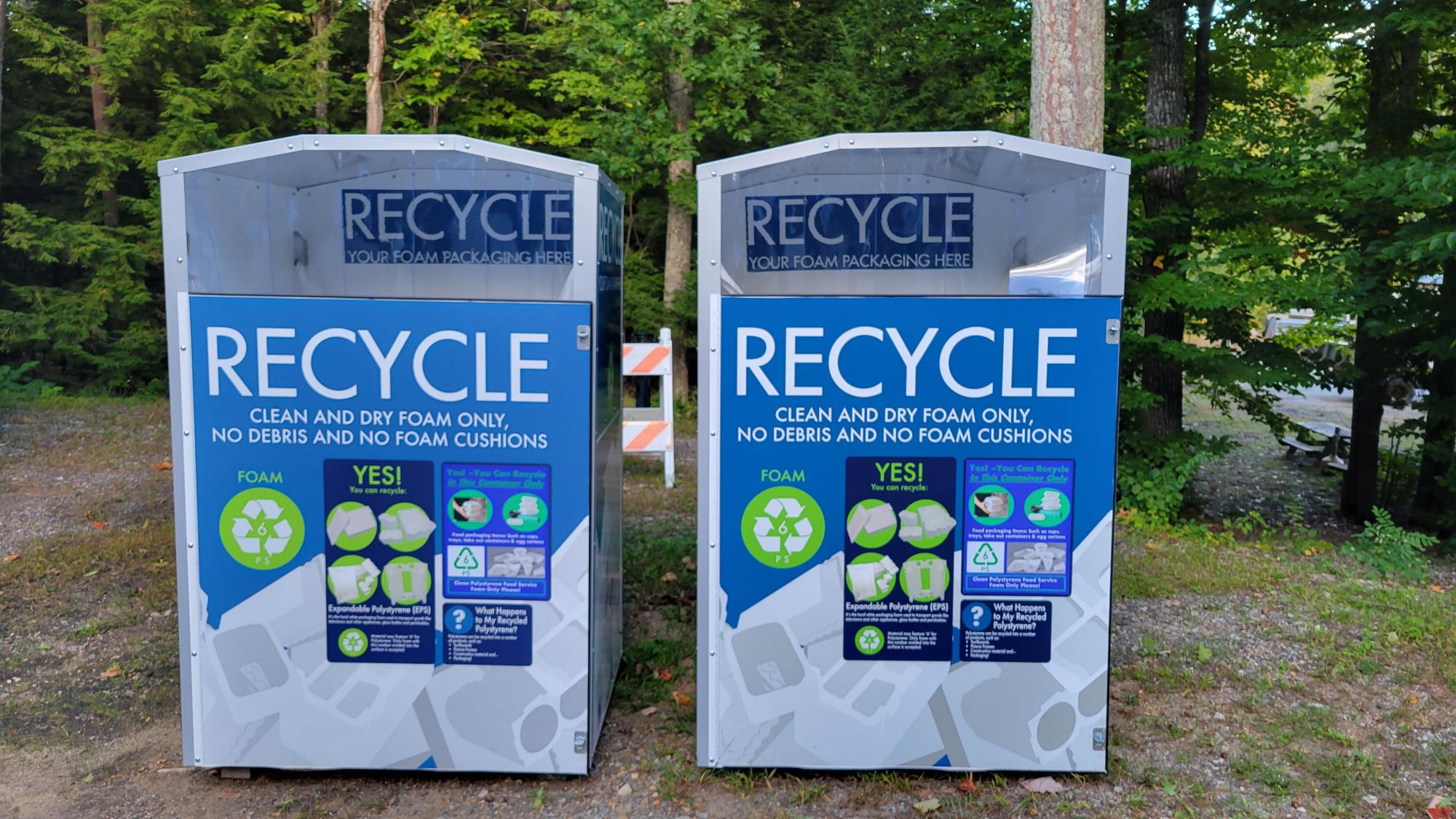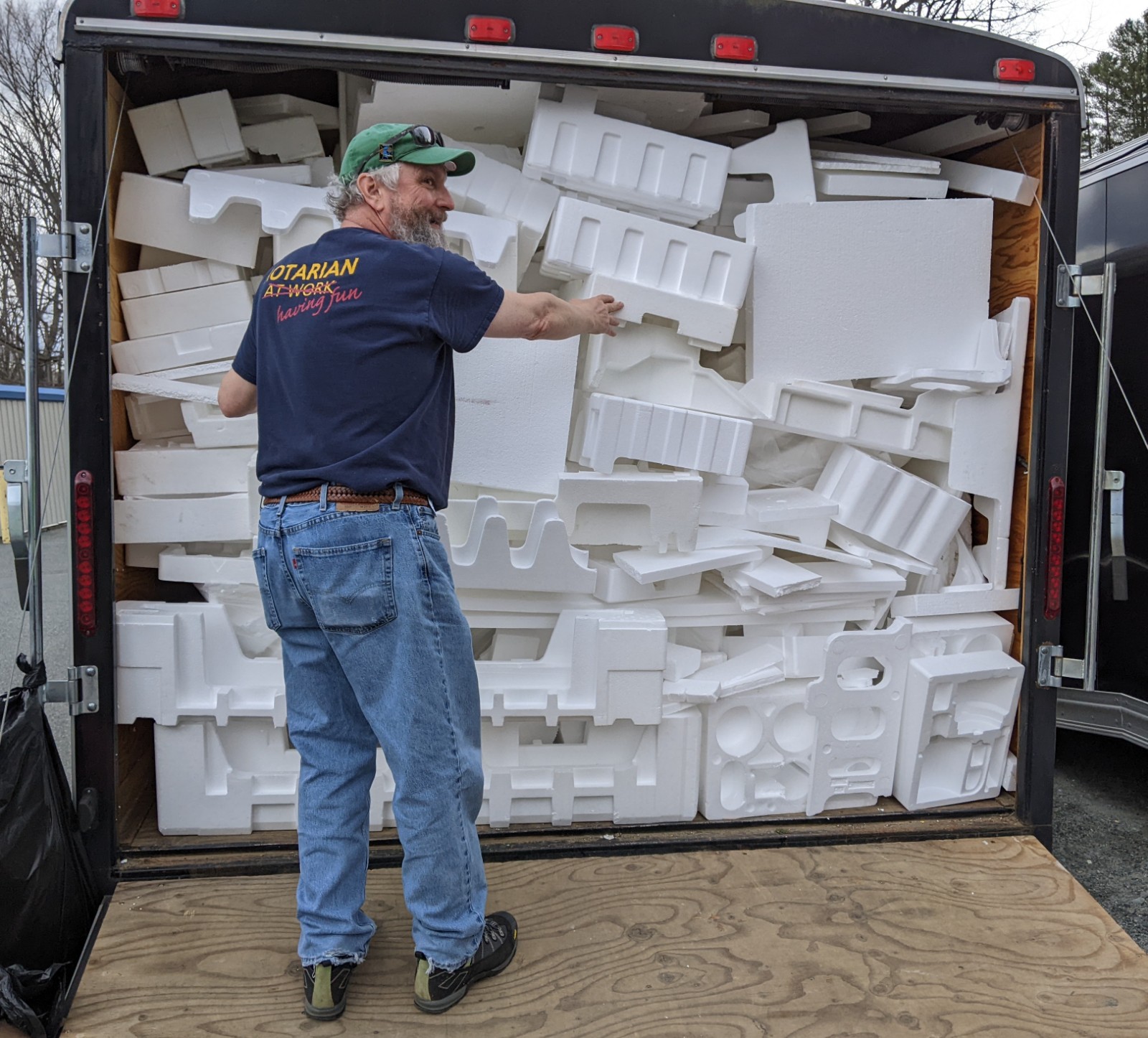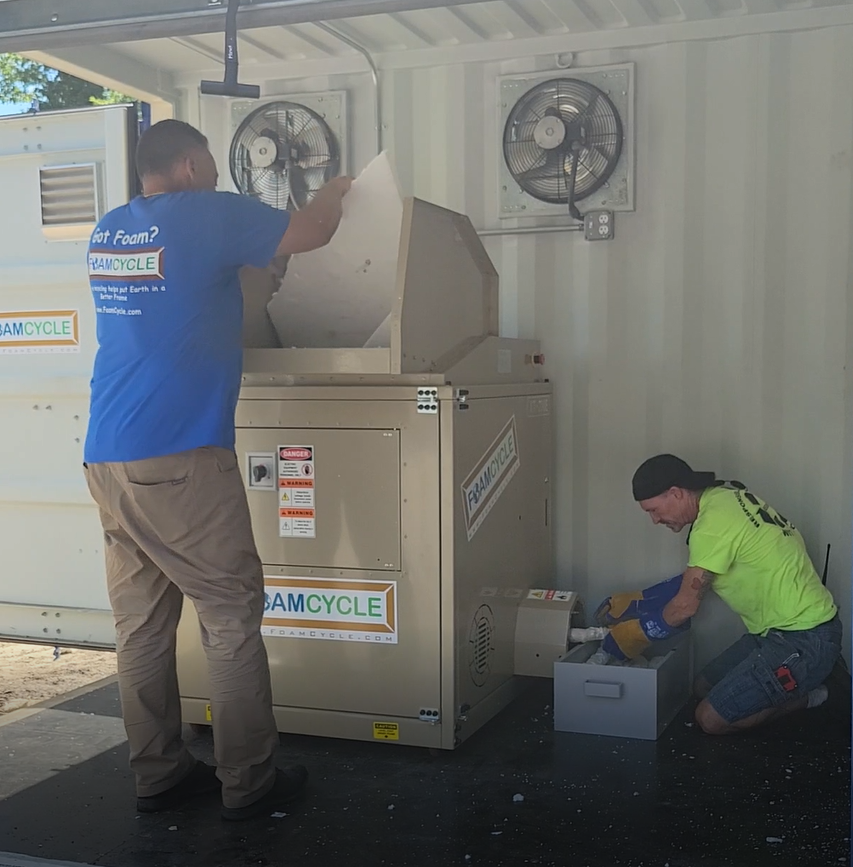The information contained in this article is not intended as legal advice and may no longer be accurate due to changes in the law. Consult NHMA’s legal services or your municipal attorney.
Towns and cities throughout New Hampshire that operate landfills, recycling facilities, and transfer stations are always seeking ways to divert waste, avoid pollution of our air, soil, and water, save money on disposal costs, and generate revenue for their operations. Successful strategies include separating plastics, reducing contamination of recyclables through consumer education, and recycling unusual items such as batteries, mattresses, flexible film plastic, and construction and demolition debris, all aimed at reducing and diverting waste. It is critical that we join together with our peers and like-minded professionals to think outside the box and find new ways to be innovative and successful in our recycling efforts.
A new recycling stream is now available to communities for a type of plastic not typically recycled in curbside bin pick up programs or recycling facilities - #6 expanded polystyrene packaging (EPS) and #6 polystyrene food service foam (PS), both commonly known as Styrofoam. In partnership with past Rotary District Governors and participating communities, the Gilford Solid Waste Center is now accepting #6 foam for proper collection and recycling. The program is open to the public through an approved NH DES permit, and Gilford has already welcomed several towns who are hosting community collections and delivering foam for processing including Lebanon, Cornish, Harrisville, Alexandria, Plymouth, Sandwich, Tamworth, and Hanover, with many more expressing interests in the program.

Cornish and Lebanon volunteers hosted the first foam collection pilots in 2021. Phil Bush of Sustainable Lebanon, a nonprofit environmental advocacy group, notes that a partnership with the Lebanon Rotary Club has brought together a strong volunteer group for the collections. “The community has responded enthusiastically. We’ve had an average of 250 people from 30 towns participating, bringing very high volumes of foam along with generous financial contributions that cover the cost of transportation to the Gilford densifier facility. "
During the pandemic, EPS foam packaging production increased to support the safe delivery of COVID vaccines around the world. Food service foam for take-out use increased as well, and foam packaging is still used to protect office furniture, appliances, heat pumps, and electronics during shipping. While new packaging and take out alternatives are rapidly being developed, such as reusable, refillable, compostable, and plant-based packaging which avoids the chemicals used in making plastics, foam packaging is still widely in use, and can be recycled. A few states have passed food service foam bans, but most of the laws don’t address rigid foam packaging.
The Foam Recycling Program aims to reduce foam waste in landfills, save money on trash disposal, generate revenue through recycling, and reduce plastic pollution in our communities. This program works as a “Hub and Spoke” concept where outlying communities (spoke sites) collect foam via organized events, collection containers, or super sack bags. These events and/or containers can be managed by Rotary Clubs, local transfer stations, volunteer groups, and town committees focused on sustainability, waste reduction or recycling. The foam material collected can be brought to the Gilford Solid Waste Center hub for densification. Communities are encouraged to reach out to local groups to see if they have an interest in working together on this effort.
Scott Weden, Plymouth Town Manager notes, “The Town of Plymouth supports this very important endeavor as it could reduce waste in our community. I have met with the Plymouth Rotary Club looking at ways to promote and include our recycling center in this program of which they are very supportive."

The Rotary Clubs play a crucial role in taking this program to the next level. According to Former District Governor John Bob Siemeinowicz of Milford, "Since Rotary International has adopted the Environment as its seventh area of focus, this is a perfect opportunity to show that we all are people of action, both Rotarians and other concerned members of New Hampshire communities." Through this program, participating Rotary Clubs would promote the program to their local audience, collect foam from residents and businesses in their communities, transport the foam back to Gilford, and provide possible funding efforts for the purchase of a permanent small collection unit. “Our Rotary Club is excited about being a part of this environmental effort and is so appreciative of Meghan’s leadership in moving this recycling program forward. We are looking forward to hosting our first collection effort here in Plymouth this spring, ” says Mike Carrier, Plymouth Rotary Club President Elect and former District Governor.

The Gilford Department of Public Works (DPW) is spearheading the information sharing about this initiative by speaking at numerous meetings and conferences and sharing public informational flyers with NH towns. “You made a presentation to our club last fall on this program and we were greatly impressed. Polystyrene is slow to degrade, and if disposed of improperly, the foam can leach chemicals into the environment, potentially harming our valuable ground and surface waters. The Lakes Region Rotary Club fully supports this endeavor and is interested in getting more involved in the program," says Pat Tarpey, Lakes Region Rotary.
The steps to hosting a foam collection in your community are easy:
- Determine the partners who will be involved - Rotary, town/city officials, committees, volunteers
- Identify the collection site - it should have clean and dry storage if necessary
- Determine the method of transportation; covered trailer, rented UHAUL or volunteer vehicles
- Call Gilford DPW to request poly bags and set up a delivery date
- Set the date for the collection and promote through local channels - Rain or Shine!
- Recruit volunteers, assign roles – greeters, traffic flow, inspection, packing
- Prepare public information handout on how to reduce foam use
- Transport foam to Gilford Recycling Center
- Celebrate your success!
Another option for communities is to ask their local Department of Public Works and Transfer Stations to purchase several super sack bags and collect directly from residents onsite and then transport as needed to Gilford. The Town of Alexandria has been collecting foam for just two months now and is getting great participation from their residents. Steve Lacasse, Transfer Station Supervisor, reported collecting 10 cubic yards in just 8 weeks. “For a small municipality such as Alexandria to pull the equivalent of a 40-yard container out of our annual waste stream numbers and out of our landfills, to me is huge!!” The Alexandria Board of Selectman agreed saying, “We are excited to have an option for the disposal of foam. We have begun to pull the material from our compactor to participate in this program. This has resulted in a decrease in the amount of material put into our compactor and an opportunity to increase the amount of materials we recycle”.

LRPC is working with Gilford DPW to acquire grant funding to pay for the remaining balance of the Gilford densifier unit patented by Foam Cycle LLC. This unit is key to preparing foam for processing and transport to a vendor who can reuse the densified foam (ingots) to make new products such as insulation, molding, and picture frames with a high level of recycled content. Gilford received a $50,000 grant from the Foam Recycling Coalition last summer toward the purchase of a Foam Cycle densifier system. With a goal of expanding the program regionally to other communities, Sustainable Lebanon and the Plymouth and Gilford Rotary Clubs have purchased large reusable poly bags that can be loaned out to communities for foam collection events.
DPW Director Meghan Theriault is already seeing a cost savings for Gilford in annual hauling costs by diverting space-wasting foam from the disposal system. Gilford has been collecting an average of 50 CY of foam/month which is equivalent to 7.5 40-yard containers in just six months’ time. Removal of this foam has reduced the number of MSW hauls and increased the weight of each haul by close to 2 tons. Gilford saw a cost savings of $2,500 in hauling fees in 2022 from recycling foam and anticipates a savings over $6,000 in 2023. “The Town of Gilford is extremely honored to become the first hub for foam recycling in New Hampshire. We are seeing immediate cost savings for our solid waste operation and encourage other towns and cities to try recycling foam on a trial basis so they can see the same financial and environmental benefits. It has been exciting to see the growing interest and support from other communities and clubs as word continues to spread about this program.” The future success of the program truly lies in the collaboration of environmentally conscious people and groups who see the importance of diverting waste and increasing recycling that will bring this program to the next level.
If you have questions on the Foam Recycling Program or are ready to set up a spring collection event, please contact Meghan Theriault at Gilford DPW via DPWDirector@gilfordnh.org.
See www.gilfordnh.org/recycleright for more information!